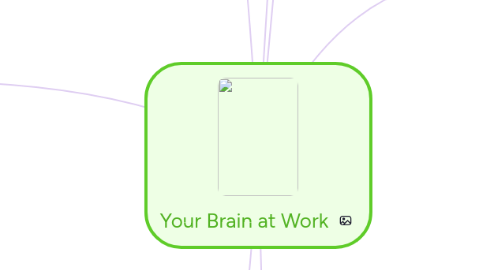
1. Time Management Advice
1.1. Prioritize Prioritizing - early in the day when attention is at its peak
1.2. Use the brain to interact, not to store - use visual aids, colors, lists to store
1.3. Do NOT Multi-task
1.4. Don't start working on an item if all resources not available to avoid "queue"
1.5. Separate Blocks of Time for variation
2. Planning Advice
2.1. Simplify e.g soundbites --> executive skill
2.2. Chunk work
2.3. Only hold 2 items to compare, max 3-4 no more
2.4. Inhibit distractions - turn off everything, clear mind, clear workspace
3. Collaboration Advice
3.1. SCARF
3.1.1. Status - make others feel important
3.1.2. Certainty - remove ambiguity and fear
3.1.3. Autonomy - give them choice
3.1.4. Relatedness - connect at human level asap
3.1.5. Fairness - sense of justice
3.2. 1:1
3.2.1. Feedback is negative spiral i.e. suggestions reduces SCARF autonomy, raises threat
3.2.2. Facilitate positive change i.e. help others activate their Director and own insights
3.2.3. Reward if they find answers for positive spiral
3.3. Teams (home or work)
3.3.1. Requires Culture Change which needs focused attention on new items for long enough time
3.3.2. Create Safe Environment using SCARF
3.3.3. Facilitate new connections in team members
3.3.3.1. Story telling (may work for some)
3.3.3.2. Ask solution focused questions
3.3.3.3. Set goals / gamify
3.3.4. Keep connections fresh by talking about it regularly
3.3.4.1. Regular meetings
3.3.4.2. Posters / wallpapers
4. Handle Emotions Advice
4.1. Refocus quickly in VETO state
4.2. Label/Name your state to inhibit limbic system
4.3. Re-appraise
4.3.1. Re-interpret - make current problem seem less
4.3.2. Normalize - "this is normal"
4.3.3. Reorder - see higher priorities e.g. family
4.3.4. Reposition i.e. empathize other person view
4.4. Expect good things to increase dopamine levels
4.5. Set low expectations to exceed them and create positive spiral
5. Working Memory
5.1. Pre-Frontal Cortex (PFC)
5.1.1. Power hungry, needs glucose, precious resource
5.1.2. Only 4-5% of brain volume - stage vs audience
5.1.3. Low processing power - coins vs US economy
5.2. Conciousness
5.2.1. Understanding - relate to memory
5.2.2. Deciding - between memory items
5.2.3. Recalling - from memory
5.2.4. Memorizing - to memory
5.2.5. Inhibiting - restrict from memory
5.3. Routine Activities
5.3.1. Basal Ganglia
5.3.2. Sub-concious, low power e.g. Driving, Typing
5.4. Distractions / Inhibiting
5.4.1. VLPFC, part of PFC
5.4.2. Braking system, power hungry - effectiveness reduces with use
5.4.3. 0.2 seconds VETO time i.e. Point of no Return
5.5. Interest / Alertness
5.5.1. Norepinephrine = Alertness (raised by fear)
5.5.2. Dopamine = Interest (raised by novelty and rewards)
5.5.3. Optimal values creates positive spiral = Peak Performance!
5.5.4. Too Much = sensory overload and unable to think
5.5.5. Control/Deactivate using other cortexes
5.5.5.1. Motor cortex e.g. "Take a walk"
5.5.5.2. Practice mindfulness to activate other senses
5.6. Insights / Intuition
5.6.1. Inhibit PFC to activate other parts of brain - focus on patterns using high level items only
5.6.2. Awareness
5.6.3. Reflection of own mind working (Director/Mindfulness)
5.6.4. Insight - the "a-ha" moment
5.6.5. Action - since the "a-ha" only lasts for short time
5.7. Emotions
5.7.1. Limbic System
5.7.2. Decides between Reward and Threat response which are stored in Hippocampus (long term memory)
5.7.3. Toward response for Rewards e.g. happy, curious
5.7.4. Away response for Threats e.g. sad, anxious
5.7.5. Power hungry when over aroused leading to connection errors i.e. bad judgement
5.7.6. Suppressing does not work - makes others uncomfortable since they mirror emotions

